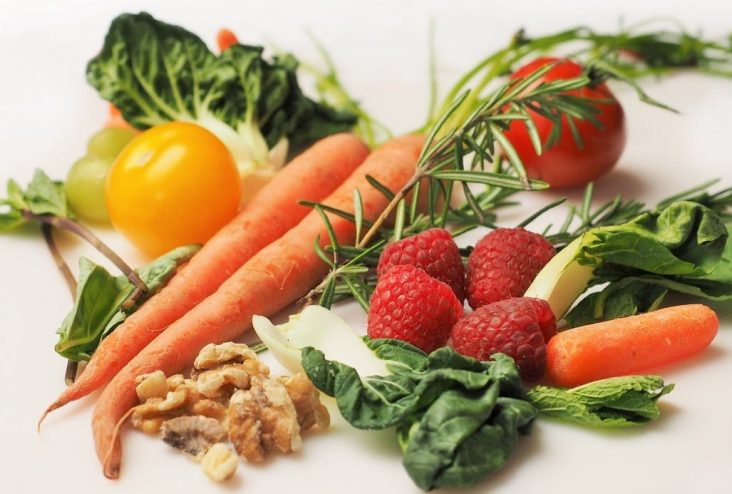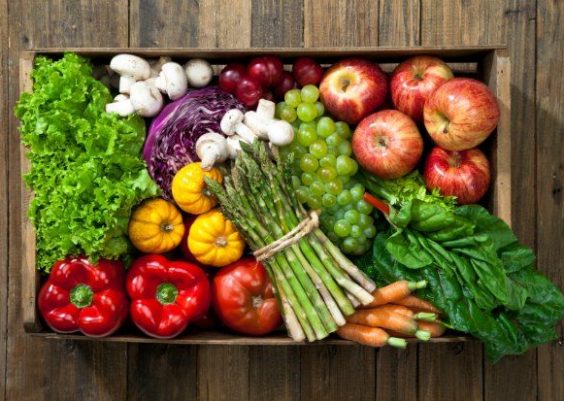Going low on sodium

If you’ve ever had high blood pressure, you were probably told to cut down or stop consuming sodium. But a new study from Boston University that followed 2,600 people over 16 years found that a low-sodium diet didn’t actually lower blood pressure. So salt might not be the enemy after all—and actually, a little salt might be part of a healthy food plan. The study also found that people with the lowest intake of sodium (along with the highest) had a greater risk of heart disease than the people in the middle. But, that doesn’t mean you should go crazy eating processed foods that contain lots of sodium either. “In general, focusing on reducing processed foods, which tend to be rich in added sodium, and adding in more whole foods may be more effective than just focusing on counting milligrams of sodium when it comes to promoting heart health,” says Erin Palinski-Wade, RD, CDE, author of Belly Fat Diet for Dummies.
Avoiding dairy
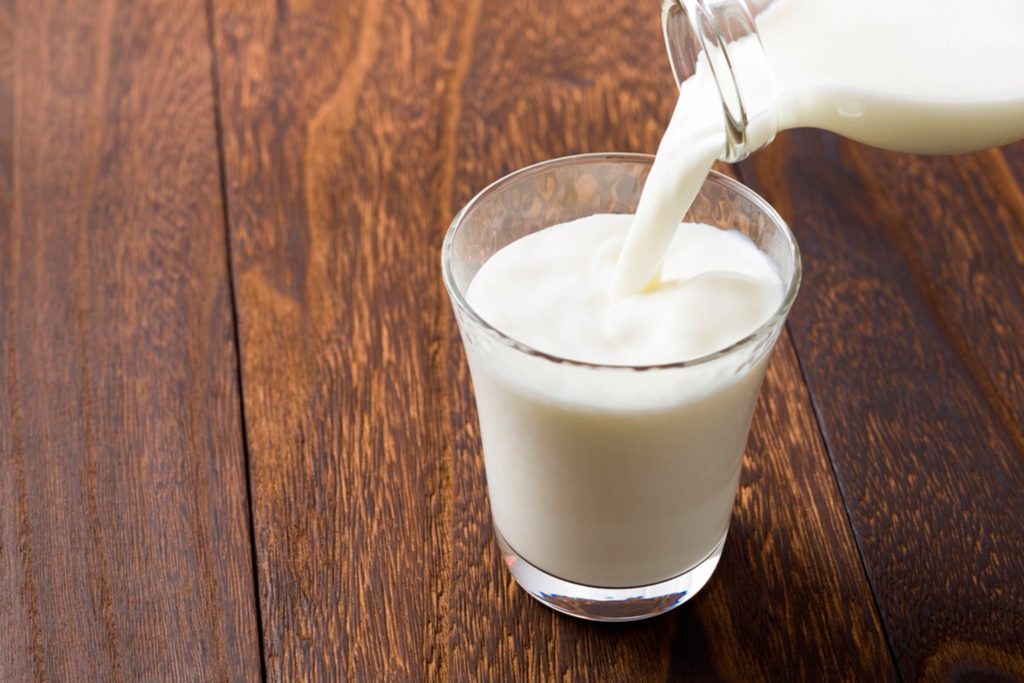
You may have heard the theory that drinking milk past infancy (or even drinking animal milk at all) is “unnatural”—as evidenced by 65 percent of people in the world being lactose intolerant. Although it is true that humans are the only species to drink milk as adults—or to drink milk regularly from other animals—research has shown we’ve genetically evolved to adapt to it. And in fact, milk products actually play an important role in our health. “Dairy is rich in beneficial nutrients such as whey protein, conjugated linoleic acid, and calcium,” Palinski-Wade says. Some past research has shown that low-fat dairy could help lower blood pressure; but new research also finds benefits to full-fat dairy. Surprisingly, a recent study found that those who ate full-fat dairy (but not low fat) gained less weight, possibly because it keeps you fuller longer. It also may reduce diabetes and heart disease risk.
Not consuming fat
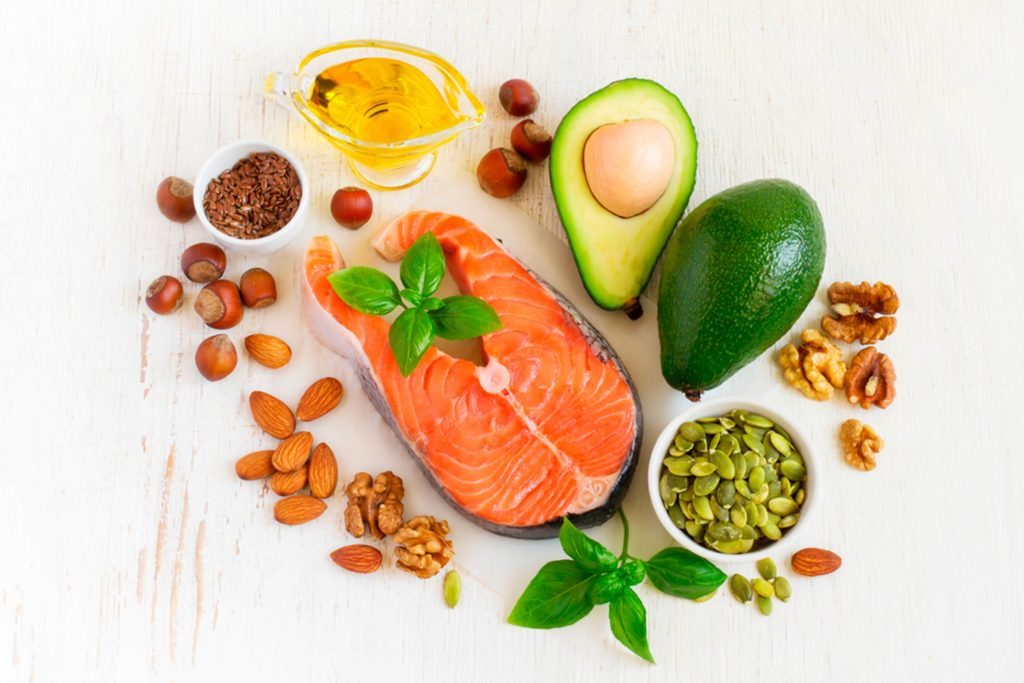
As with dairy, fat in general may not be such a bad thing. The scientific community is still debating the benefits of saturated fat, but other types of fats are actually good for you in moderation, according to the Academy of Nutrition and Dietetics. “Plant-based fats such as monounsaturated fats found in foods like almonds and avocado, and omega-3 fatty acids found in fish offer many health benefits,” Palinski-Wade says. “These fats may reduce inflammation, improve blood lipid levels, and may even promote a lower body weight.” Plus, many processed foods labeled “reduced fat” have replaced the fat with sugar or additives, which actually make them more unhealthy. “Many individuals are still fat-phobic and feel that all dietary fat should be avoided, but we all remember the low-fat craze of the ’90s that caused everyone to gain weight!” Palinski-Wade says.
Content continues below ad
Worrying about cholesterol in food

If you think you’re being healthy by eating egg whites only, think again. Despite what we’ve been told for years, egg yolks, which are high in dietary cholesterol, can be healthy habit health foods. “We used to think that dietary cholesterol impacted our [blood] cholesterol levels, and that foods rich in cholesterol such as eggs should be avoided,” Palinski-Wade says. “We now know that dietary cholesterol has little impact on blood cholesterol levels.” Plus, blood cholesterol isn’t so cut-and-dry either: There’s so-called “good” HDL cholesterol, which is thought to help heart hearth (although this has recently been called into question), and “bad” LDL cholesterol. In any case, the most recent federal nutrition guidelines from the USDA and Department of Health and Human Services lifted the restrictions on dietary cholesterol, saying it’s “not a nutrient of concern for over-consumption.” Egg yolks are also a good source of vitamin E and carotenoids.
Skimping on shellfish
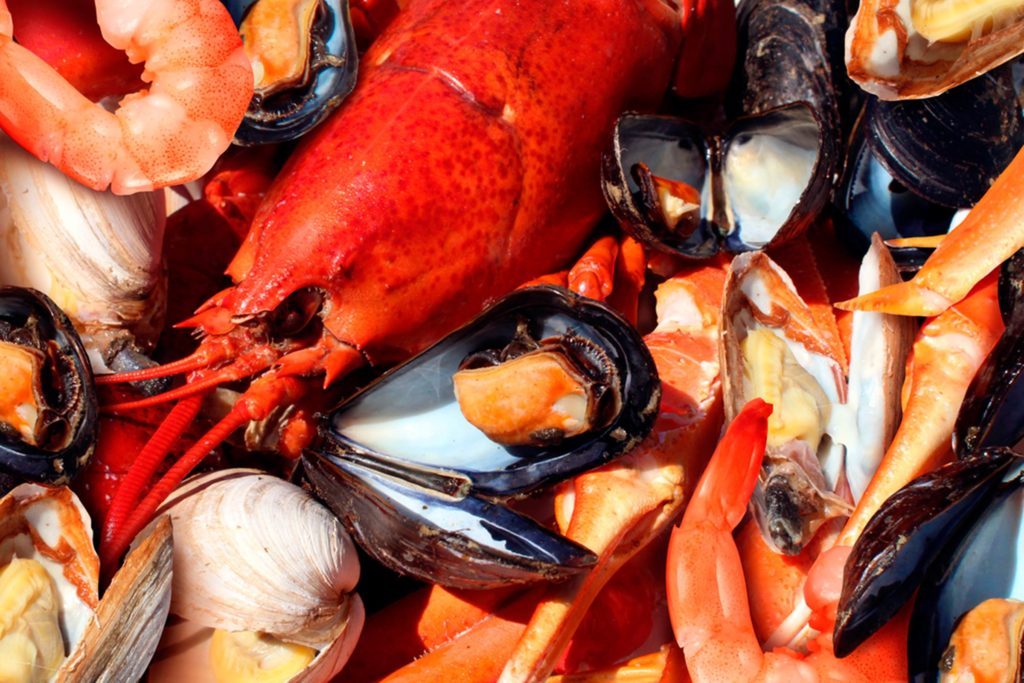
Shellfish has also gotten a bad wrap due to its dietary cholesterol and its reputation as “bottom feeders.” But unless you’re allergic, shellfish, including mussels, clams, shrimp, lobster, and crab, can be part of a healthy diet. They are rich in protein, omega-3s, and the antioxidant selenium. Research from Oregon Health & Science University found that shellfish promotes brain health and may even help prevent Alzheimer’s disease. According to the University of Pittsburgh Medical Center (UPMC), choose domestic seafood to ensure your meal didn’t come from water containing contaminants, and check local water conditions if eating locally caught.
Eating processed “healthy” foods

It may seem like diet products such as light salad dressing are healthier choices, but often they’re really not. “‘Healthy’ foods like this used to be popular, but many of these products remove the fat and replace it with added sugars,” Palinski-Wade says. “Large amounts of added sugar in the diet may be even more damaging to health than excessive dietary fat.” A major study from the CDC showed that people who consumed a lot of sugar were more than twice as likely to die from heat disease. “If you opt for a ‘lighter’ food, check the ingredient list and food label to make sure the fats have not been replaced with added sugars,” Palinski-Wade says. In addition, “health” foods like energy bars are also often filled with additives. Even prepackaged vegetarian or vegan foods can fool you. “In general, its not safe to assume that just because something is vegan it is healthy,” says Despina Hyde Gandhi, MS, registered dietitian at NYU Langone’s Weight Management Program. “These items can be quite high in calories, and I would encourage someone to read food labels and decide how the product fits into a balanced diet.”
Content continues below ad
Going gluten-free if you’re not allergic to gluten

Gluten, found in grains like wheat, barley, and rye, has gotten a bad rap lately, and some people think it’s healthier to go without it. But in reality, the opposite might be true. “Unless you are truly allergic or intolerant to gluten, there is no need to avoid it,” Palinski-Wade says. A study from Spain actually showed that going gluten-free led to reduced gut bacteria, which affects immune function. Another study from the University of Illinois also found that people who were gluten-free had higher levels of arsenic, probably because they tend to eat a lot of rice. In addition, “some people promote gluten-free diets as a way to reduce body weight, however gluten-free foods may actually promote weight gain if you are not careful [because they are often packed with calories],” Palinski-Wade says. “If you do opt for gluten-free foods, choose options made with whole grains to prevent a reduced fiber intake.”
Eating “whole grain” or “multigrain”
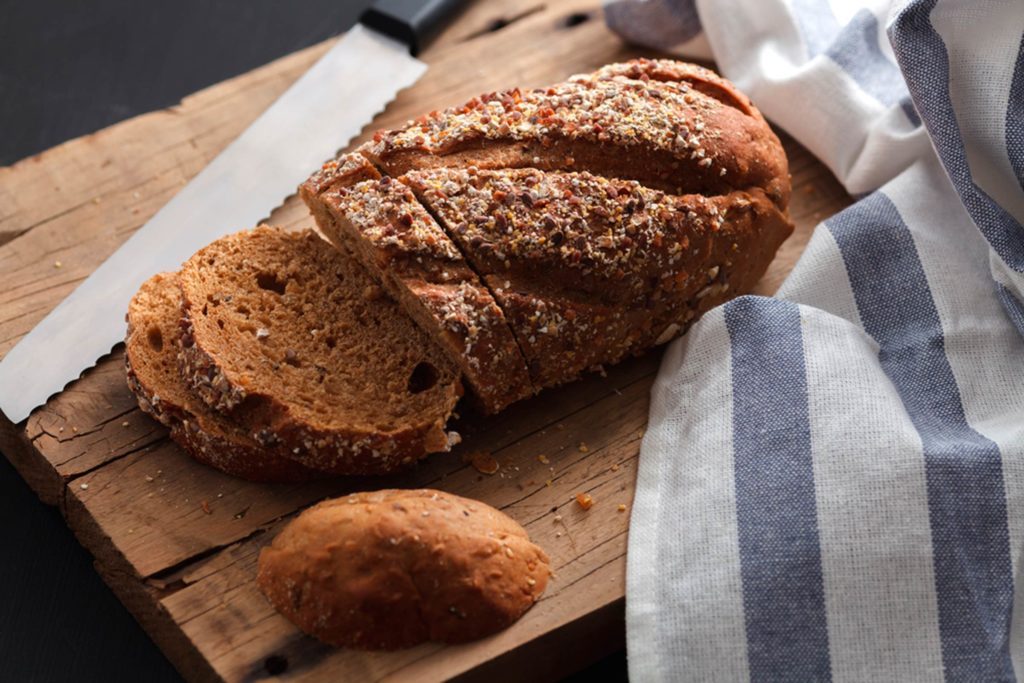
Speaking of eating whole grains, one mistake you might be making at the grocery store is not reading the labels properly on breads and also foods make with them. “If a product is just labeled whole grain or multi-grain, there may be some whole grains in the food, but the entire food is not necessarily 100-percent whole grain,” Palinski-Wade says. According to the Cleveland Clinic, 100-percent whole grains can lower your risk of stroke, heart disease, and diabetes. But although it sounds healthy, “multigrain” really just means a blend of grains, which can be refined or whole—so that label doesn’t really mean it’s a healthy food. “Look at the ingredient list to identify how much of the food is truly made from whole grains—If a product is labeled 100-percent whole grain, then you know,” Palinski-Wade says.
Drinking almond or other “milks”
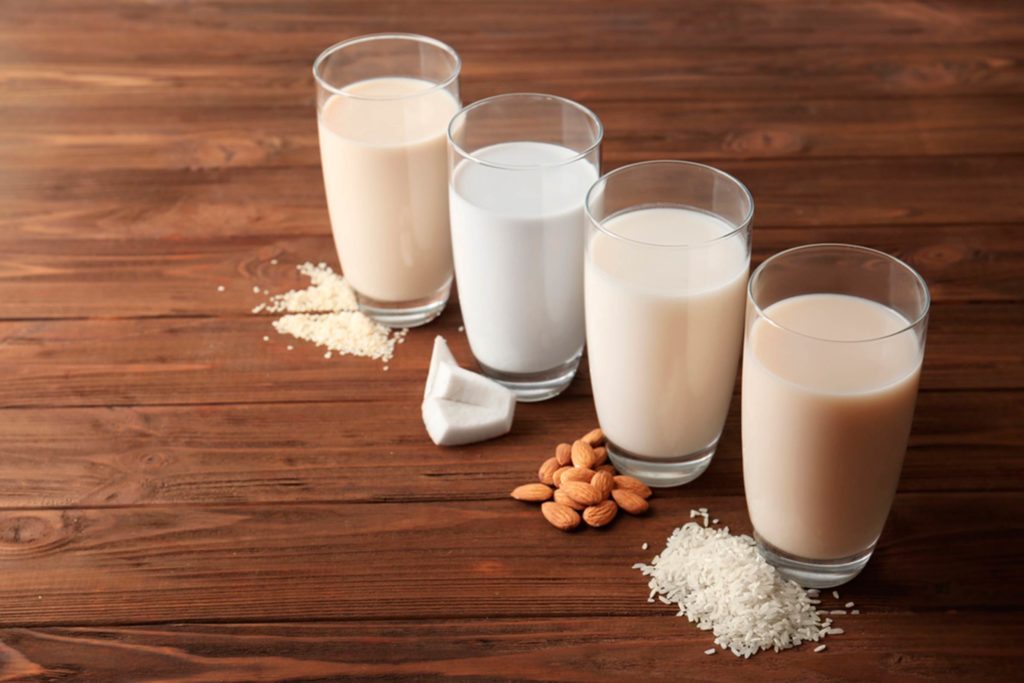
Although there’s nothing inherently wrong with alternative milks, they might not give you the nutrients you think you’re getting. “Almond milk is not a good source of protein—it contains only two grams of protein per serving compared to eight grams in cow’s milk,” Gandhi says. Although you think of nuts as high in protein, the “milk” is mostly water, so the nutrients get lost. And be careful if you’re replacing cow’s milk for babies—a study from France showed that this can result in nutritional deficiencies. The dairy industry has even launched a campaign to prevent almond and other plant-based milks from being called “milk” so that consumers won’t think they’re nutritionally similar. But if you do choose to go with a plant-based milk, choose unsweetened. “Check to make sure you aren’t buying the sweetened version with added sugars or sweeteners,” Gandhi says.
Content continues below ad
Guzzling sports drinks

Other beverages to be wary of include sports drinks, even post-workout. “Sports drinks have carbs and sugars that are meant to replace carbohydrates lost during exercise, but in most cases, staying hydrated with water is adequate and these products aren’t necessary,” Gandhi says. A report from the British Medical Journal (BMJ) found that evidence for the benefits of sports drinks is lacking. Unless you’re an endurance athlete exercising intensely or for an extended period, you probably don’t need the electrolytes (sodium and potassium) in the drinks. “Reaching for sports drinks unnecessarily can lead to consuming excess calories, sugars, and in some cases chemicals from artificial sweeteners,” Gandhi says.
Using agave or other “natural” sweeteners

We’ve just told you that sugar consumption is a huge nutritional problem that can affect your health, which might have you reaching for “natural” sweeteners like agave. But, they are often just as bad for you. “Many of my patients are fooled into thinking alternative sweeteners are healthier than sugar because they are labeled ‘natural,’ however that is simply not the case,” Gandhi says. “Agave, honey, and maple syrup still contain calories. Agave, for example, contains slightly more calories per teaspoon, 21, than sugar!” Studies have found that the levels of fructose in agave, honey, and other “natural” sweeteners are not any safer for your health. Whatever sweetener you choose, the American Heart Association recommends no more than six teaspoons of sugar per day for women and nine for men as one of the most healthy food habits to follow.
Only eating raw food

You may have heard the theory that cooking vegetables destroys its nutrients, which Gandhi says isn’t necessarily true. “Cooking helps food to be more easily digested, plus it’s safer and can prevent food-borne illness,” she says. “One big drawback is that this [raw food] diet is difficult to maintain—think eating out, eating as a guest in someone’s home—and may lead to nutrient deficiencies due to the restrictive nature.” Studies show that a raw food diet is associated with being underweight and other negative health consequences. One study even asserted that the reason humans’ brains evolved more than other primates is because cooking food allowed our bodies to better absorb the nutrients necessary for brain growth.
Content continues below ad
Cutting out food groups or focusing on one particular food
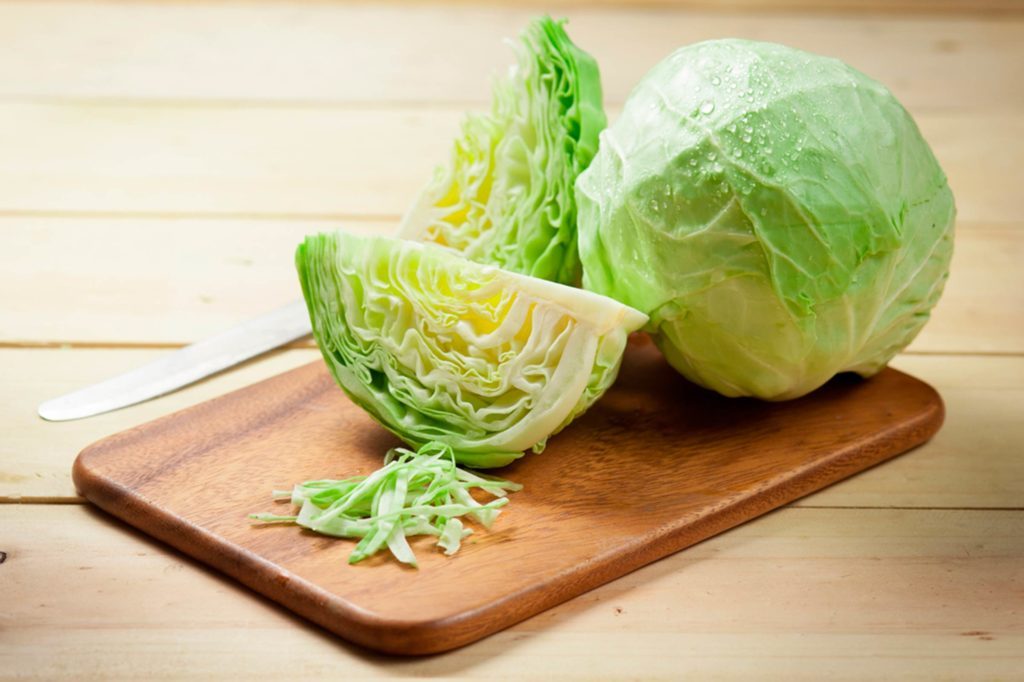
You might have tried the cabbage soup diet or the grapefruit diet—but any “health” plan that recommends you sticking to one particular food or food group is not going to benefit your well-being long-term. “Any time you cut out an entire food group you will be missing out on important nutrients that your body needs,” Gandhi says. “Often times these diets are just a way of cutting calories overall. They work for a short amount of time, but ultimately feelings of deprivation can lead to overeating and regaining all of the lost weight, plus more.” Even food theories like avoiding white food are misguided, she says. “The nutrition facts panel is more important than the color!” she says. “Cauliflower, Greek yogurt, and eggs are just a few examples of white foods that are healthy.” The Academy of Nutrition and Dietetics says to ditch diets that allow unlimited quantities of any one food, promote combining certain foods or at certain times of the day, limit food choices, or follow rigid meal plans. The best way to be healthy is by eating a well-rounded diet from all food groups.

